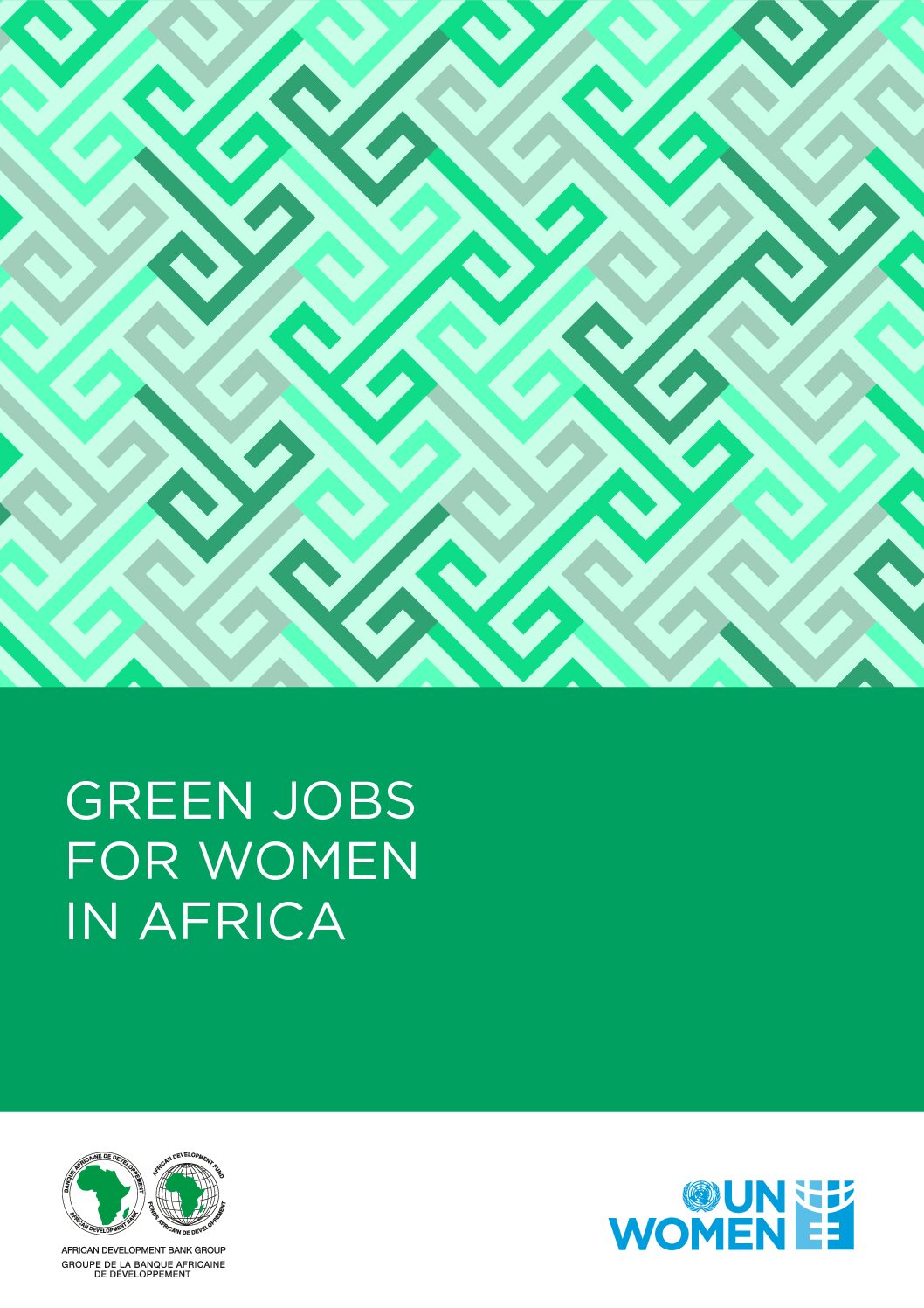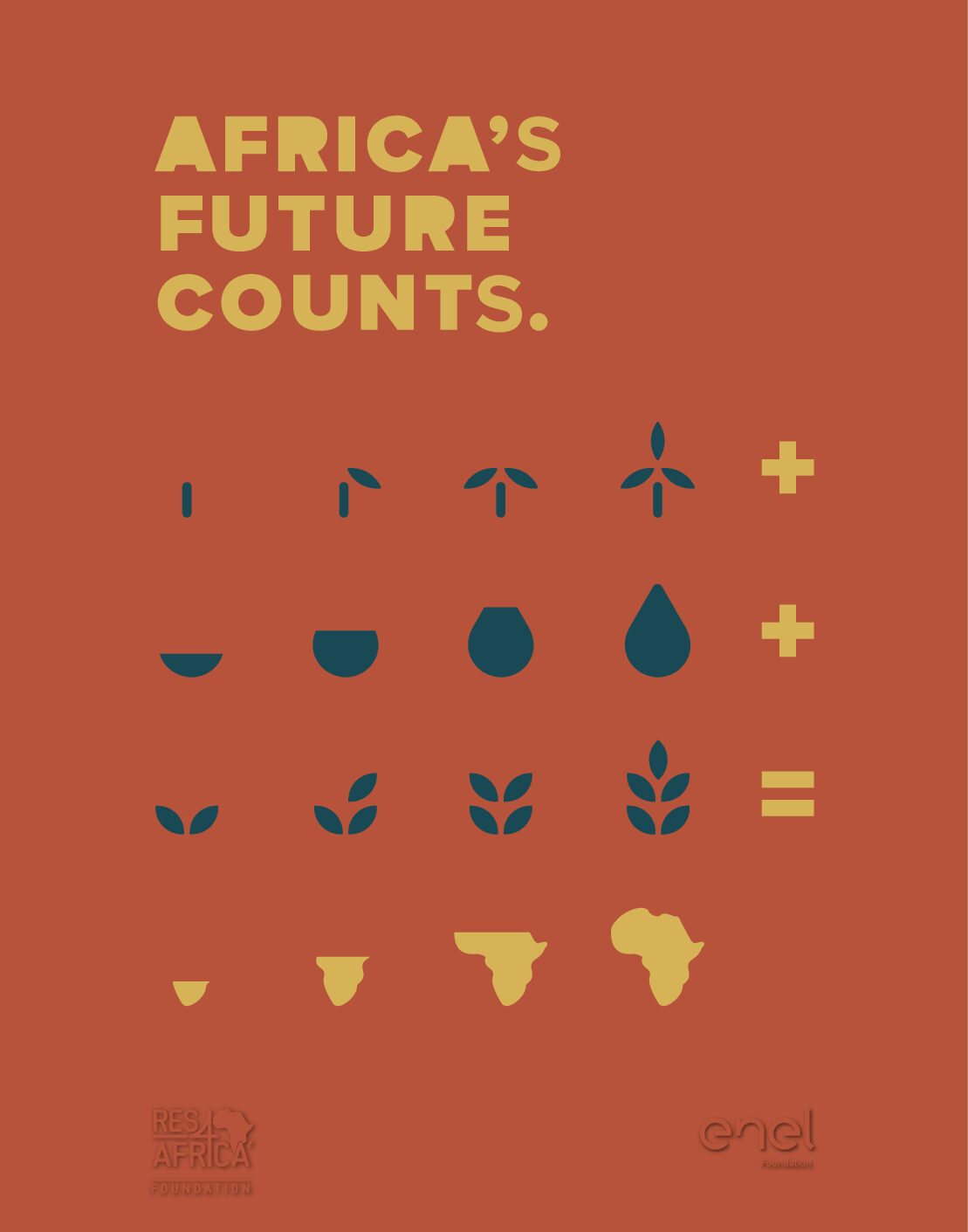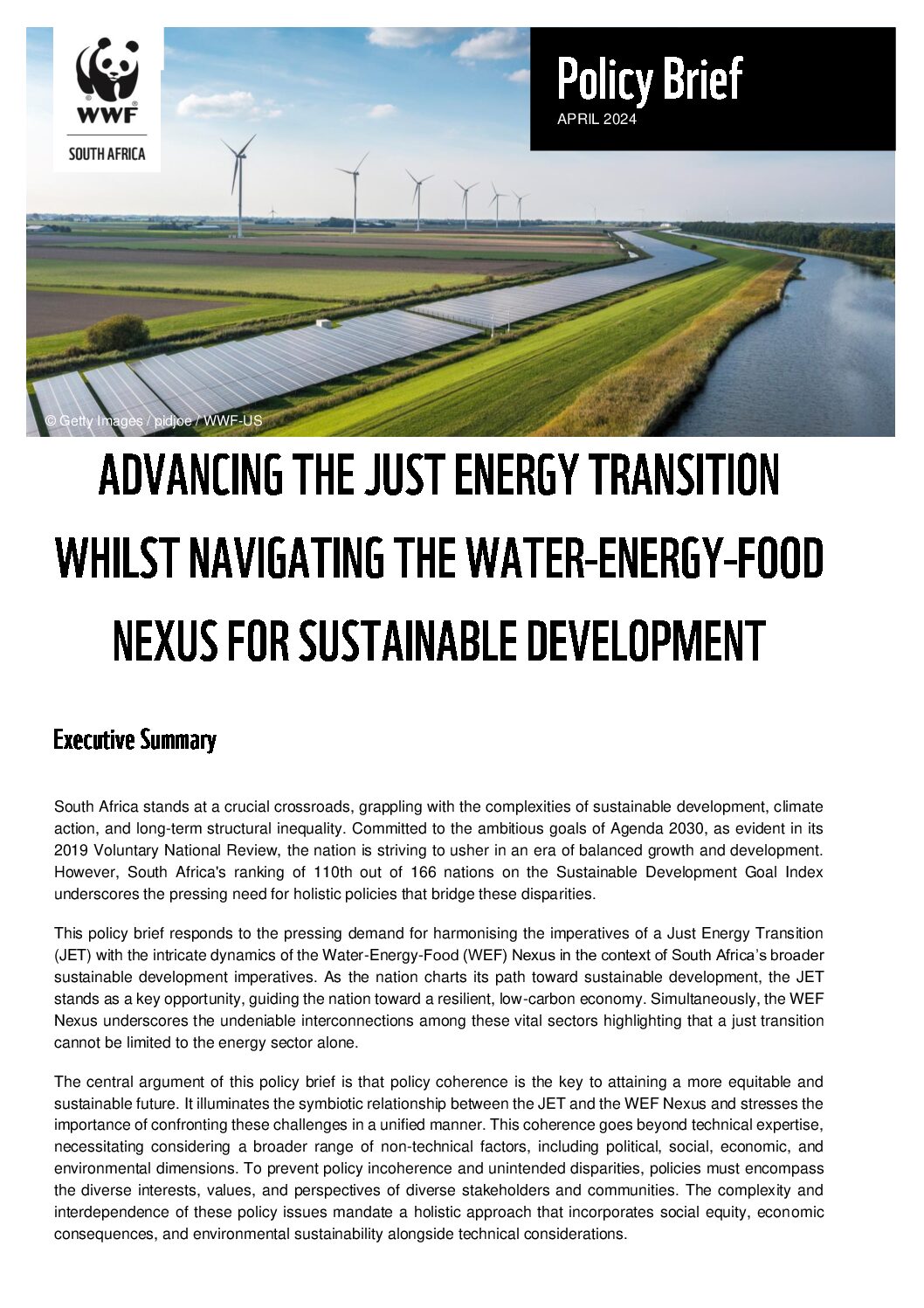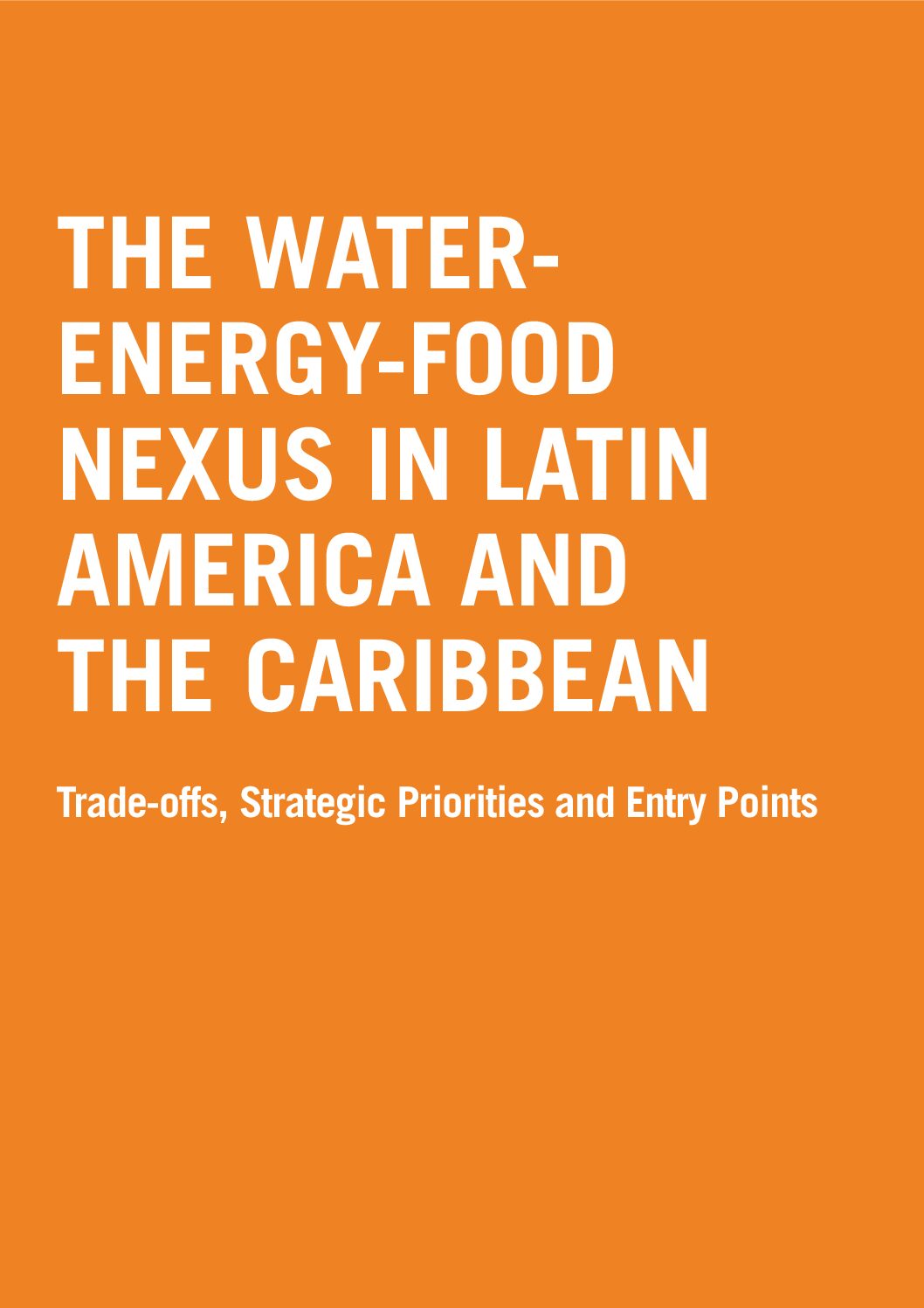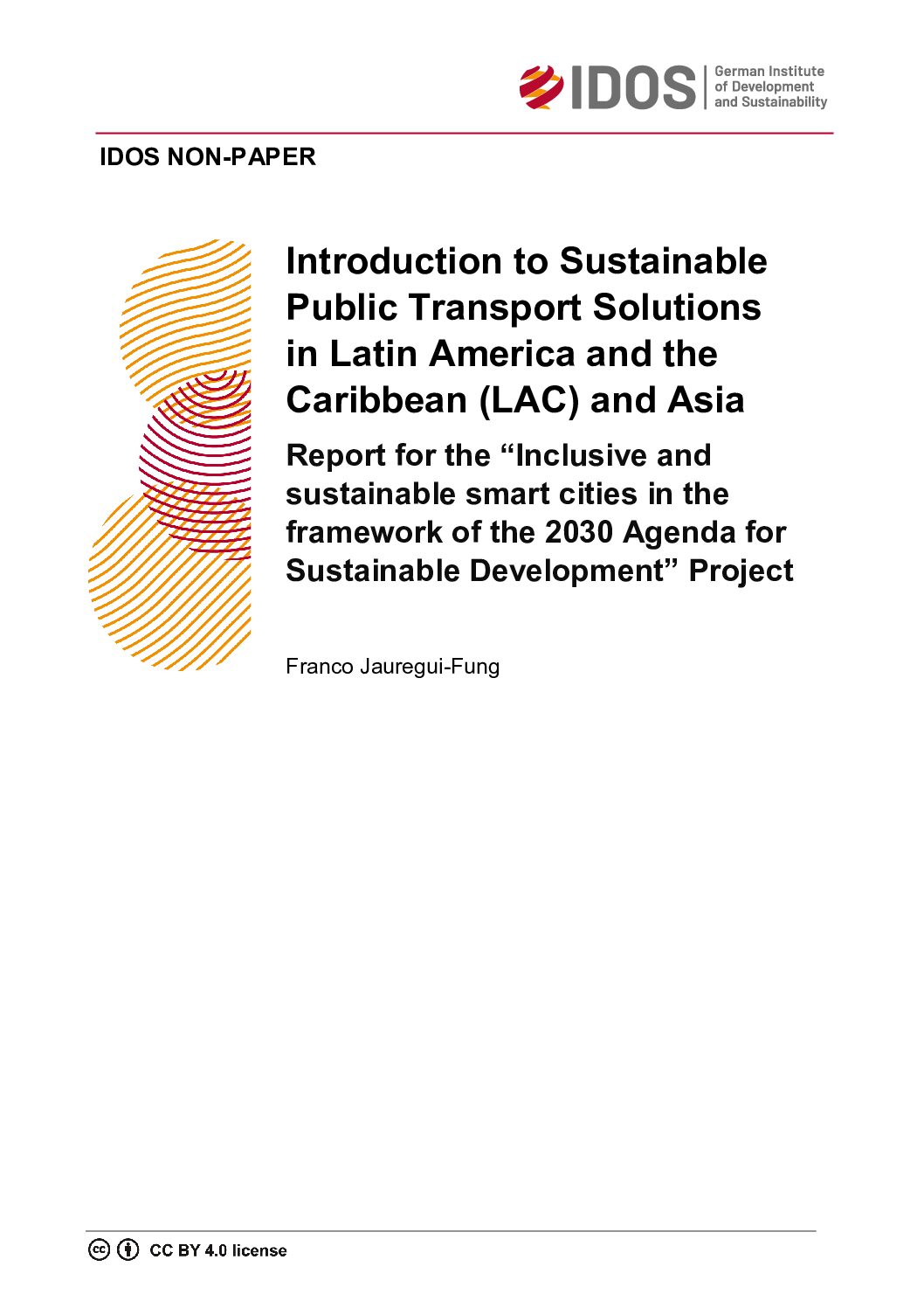This report provides evidence to inform policy advocacy and reform at the regional and national level to ensure women benefit equally from the jobs created through the transition to a green economy in Africa.
People need water, energy, and food to sustain their livelihoods, grow economies, and achieve sustainable development. The interactions between these resource sectors form the crux of water-energy-food (WEF) nexus assessments. This study analyses the WEF nexus of 54 African nations and identifies bottlenecks resulting from water, energy, or food insecurity.
This report calls for greater cross-sectoral collaboration to advance energy, water and food security in Africa, highlighting how synergies between the sectors of water, energy and food create a multiplier effect, ensuring a greater return of investment.
This policy brief responds to the pressing demand for harmonising the imperatives of a Just Energy Transition (JET) with the intricate dynamics of the Water-Energy-Food (WEF) Nexus in the context of South Africa’s broader sustainable development imperatives.
This report provides an overview of the water-energy-food nexus in Latin America and the Caribbean (LAC), identifying the main challenges and opportunities for achieving water, energy and food security in the region.
This report analyses linkages in the water-energy-food-ecosystem nexus – essentially resource management trade-offs and synergies — in transboundary river basin settings. It draws on 36 nexus case studies from transboundary river basins in Europe, Asia, Africa and the Americas, providing lessons for transboundary management and cooperation.
This report first offers an overview of urban mobility challenges in LAC and Asia, then presents the Big Push for Sustainability Framework directed towards achieving sustainable urban mobility and its economic, social and environmental benefits. The third section identifies important concepts in urban mobility that van support the three selected transit solutions.
This paper undertakes a comprehensive assessment of mobility patterns and accessibility needs in Freetown, Sierra Leone, and presents evidence of the significance of accessibility-centred information to inform policy priorities.
This article looks at travel patterns around universities in Africa and MENA and proposes a framework to engage universities to expand their sustainable mobility impact.
This report provides baseline data on women’s employment in renewable energy, as well as information on barriers to gender equality and recommendations to close gender gaps.

